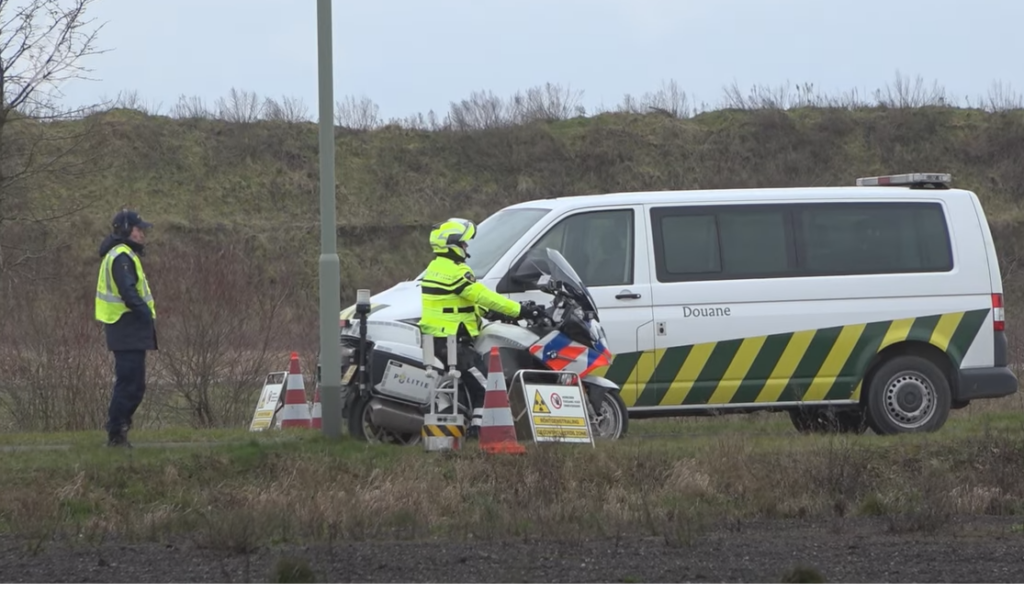During the day of action there were traffic checks and checks of ships and trucks.
Criminals like to use our infrastructure. During the action week in Amsterdam from 11 to 14 April 2023, Transport Facilitated Organized Crime (TFOC) pointed out the transport sector's vulnerability to criminals. On April 12, there was a day of action in the port of Amsterdam. The aim of the TFOC program is to combat and disrupt subversive crime in the logistics and transport sector. During the day of action there were traffic checks and checks of ships and trucks. The agents also literally went for coffee with drivers and skippers in the port area.
Armed with jugs of coffee and tea, they started a conversation about undermining. To point out risks and precautions. In the hope that criminal activities will be recognized earlier in the future. The agents handed out mugs with a QR code, which refers to a video about subversion on YouTube.
Collaboration between investigative services and the transport sector
Transport Facilitated Organized Crime (TFOC) is a partnership between:
- Customs
- Law enforcement
- Prosecution
- tax authorities
- Royal Military Police
- congregations
- transport sector
Role of Customs
During the action week, Customs mainly checks goods entering the country. With special attention to items that companies have to pay tax (excise) on. Like booze and cigarettes. Customs also pays attention to hidden storage spaces in containers and trucks. Criminals often hide drugs in such spaces.

Ports vulnerable to crime
The port of Amsterdam is connected to the sea via the North Sea Canal and is therefore a seaport. Goods arrive that are destined for the entire European Union. This also increases the risk of smuggling. Near the port is a large industrial area with many logistics companies. There is little supervision there, so the area is vulnerable to subversive crime.
This is also evident from a number of recent events. For example, on 14 February 2023, Customs found 128 kilos of cocaine under a seagoing vessel. And in July 2022, Customs and the police seized another 1100 kilos and 150 kilos of cocaine in the port area of Amsterdam. The transport companies used to transport drugs often do not know this themselves. By providing information, companies can recognize criminal activities more quickly. And take action against it.
Large and small nodes are shown
Eradicating organized crime is unfortunately impossible. But TFOC is doing everything it can to dismantle and mess these up as much as possible. For example, by taking money or goods, closing companies or revoking permits.
TFOC also pays attention to the little ones. Criminals know that investigative services closely check known transport hubs. That is why they are increasingly moving to smaller airports and ports. There, too, TFOC employees help the transport sector to arm itself better against undermining, according to the Customs.



